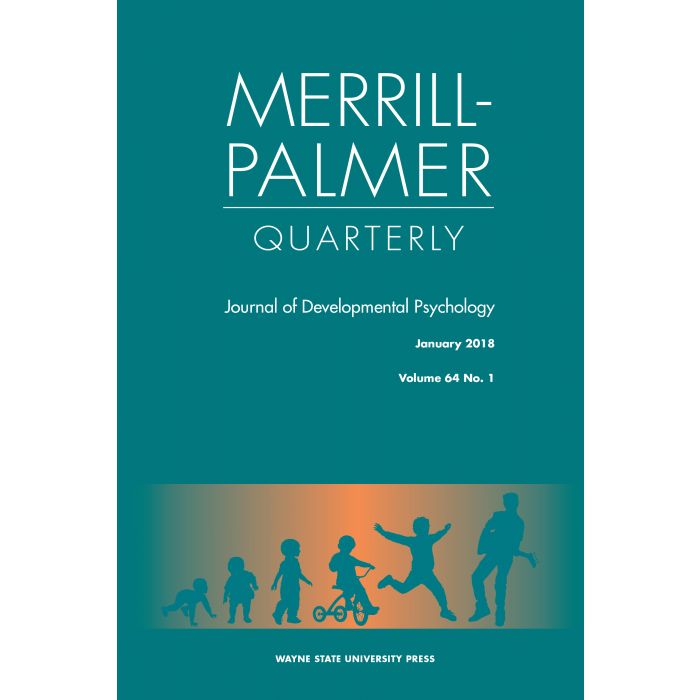Merrill-Palmer Quarterly Volume 64, Number 1, January 2018
This internationally acclaimed periodical features empirical and theoretical papers on child development and family-child relationships. A high-quality resource for researchers, writers, teachers, and practitioners, the journal contains up-to-date information on advances in developmental research on infants, children, adolescents, and families; summaries and integrations of research; commentaries by experts; and reviews of important new books in development.
Merrill-Palmer Quarterly Volume 64, Number 1 (January 2018)
Special Issue: The Neurobiology of Peer Victimization
Editor: Tracy Vaillancourt
Consulting Editors
Introduction to the Special Issue: The Neurobiology of Peer Victimization
Tracy Vaillancourt
The Impact of Social and Physical Peer Victimization on Systemic Inflammation in Adolescents
Allyson A. Arana, Erin Q. Boyd, Maria Guarneri-White, Priya Iyer-Eimerbrink, Angela Liegey Dougall, and Lauri Jensen-Campbell
Biosocial Interactions Between Relational Victimization and Physiological Stress Reactivity in Relation to Anxious/Depressive Symptoms and Cognitive Biases in Adolescent Girls
Nicole Lafko Breslend, Erin K. Shoulberg, Caitlin Wagner, Dianna Murray-Close, and Leigh Ann Holterman
Victimized by Peers and Aggressive: The Moderating Role of Physiological Arousal and Reactivity
Stephen Ungvary, Kristina L. McDonald, Carolyn E. Gibson, Andrea L. Glenn, and Albert Reijntjes
Cortisol Moderates the Relation Between Physical Peer Victimization and Physical Aggression in Preschoolers Attending High-Quality Day Cares: Evidence of Differential Susceptibility Across Informants
Tracy Vaillancourt, Heather Brittain, John D. Haltigan, Jamie M. Ostrov, and Cameron Muir
Peer Victimization Is Associated With Neural Response to Social Exclusion
Theresa A. McIver, Rachael L. Bosma, Aislinn Sandre, Sarah Goegan, Janell A. Klassen, Julian Chiarella, Linda Booij, and Wendy Craig
Peer Victimization and Neurobiological Models: Building Toward Comprehensive Developmental Theories
Wendy Troop-Gordon and Stephen A. Erath

